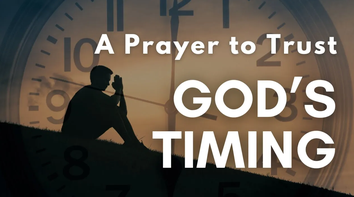How to Get a Marriage License at Baggage Claim

If you’re planning to get married today in Las Vegas, you can apply for your marriage license here, then pick it up at the baggage claim area at the airport. Alternately, if you or your travel partner is named “Valentine,” you can get free air travel to Iceland today.
A “Smooches from Pooches” kissing booth is waiting for you at Asheville Regional Airport in North Carolina. Master violinist Patrick Contreras will serenade you at Fresno Yosemite International Airport in California. If you forgot to get a Valentine’s Day card for your loved one, you might head to Chicago Midway Airport, where they’re distributing free cards today.
“Love others like God loves them.”
As Janet Denison noted in her blog, the history and legends surrounding Valentine’s Day remind us that today is “a perfect holiday to allow God to use you as a witness to his perfect love. Love God with everything in you. Love others like God loves them. Let people know you are a Christian this Valentine’s Day by sharing God’s perfect love with them.”
God’s word repeatedly calls us to love as we are loved:
- “A new commandment I give to you, that you love one another; just as I have loved you, you also are to love one another” (John 13:34; cf. John 15:12).
- “Beloved, let us love one another, for love is from God, and whoever loves has been born of God and knows God. Anyone who does not love does not know God, because God is love” (1 John 4:7-8).
- “Love one another with brotherly affection” (Romans 12:10).
- “Above all, keep loving one another earnestly” (1 Peter 4:8).
Why is it hard to do what God calls us to do?
Three enemies of unconditional love
Three cultural factors conspire together against experiencing and sharing God’s unconditional love.
One: Americans have separated Sunday from Monday, so we don’t think God’s love is relevant to the “real world.”
Centuries before Christ, Greek philosophers began separating the soul from the body and the “spiritual” from the “secular.” Their gods lived atop Mt. Olympus, far removed from our lives and problems. In no sense were these deities a source of unconditional, relevant love for us.
This worldview is still dominant in Western culture. It divorces what God united holistically. Our Father wants a personal, intimate, perennial relationship with his children. When we separate the Creator from his creation, it is unsurprising that we would discount the relevance of his love for our lives.
Two: We don’t experience unconditional love, so we don’t believe it exists.
Ernst Troeltsch was a nineteenth-century German Protestant theologian. His “principle of analogy” presupposes “an essential similarity between our humanity and the humanity of the past period.” For example, if people do not rise from the dead today, we have no basis for assuming that they could have done so in the past.
In other words, what does not happen, did not happen.
Troeltsch’s view of history became normative for many scholars and helps explain the pervasive Western bias against the supernatural. It is also a life principle for many who have never heard his name. If you’ve not experienced a miracle, it’s hard to believe in the miracles of Scripture. If you’ve not experienced unconditional love, it’s hard to believe that God can love us unconditionally.
Three: We don’t do what we need to do to experience God’s unconditional love.
Because our culture has separated God from our daily lives and doesn’t expect to experience his perfect love, many don’t experience his perfect love. Our lack of faith becomes a self-fulfilling prophecy.
“Act into feeling”
What is the biblical path to experiencing and sharing the kind of love God offers us?
Scripture teaches that the “fruit of the Spirit” is “love, joy, peace, patience, kindness, goodness, faithfulness, gentleness, self-control” (Galatians 5:22-23). Each would make a wonderful Valentine’s Day present for someone you love.
And each is a product of the Spirit’s work in our lives. This “fruit” is produced only when, to extend the analogy, we make two commitments.
First, we stay rooted in the soil of Scripture, worship, and prayer.
As Richard Foster’s Celebration of Discipline makes profoundly clear, the spiritual disciplines do not earn God’s favor–they position us to experience what his grace intends to give. A tree must stay connected to the nutrients that give it life. The same is true of our souls.
Second, we accept by faith the love produced by the Spirit.
The Holy Spirit lives in every Christian (1 Corinthians 3:16) and wants us to experience personally our Father’s love for us. But like a tree that receives what its roots and leaves produce, we must receive what the Spirit offers us.
How?
Marriage counselors often advise couples who say they don’t love each other to “act into feeling” rather than “feel into acting.” In other words, they should act as if they loved each other. They should go on dates together and do loving things for each other. Such actions precede and often produce feelings, rather than the other way around.
“You are precious in my eyes.”
If you were certain that God loved you unconditionally, absolutely, and passionately, what would change about your life? What guilt from the past or fear about the future would you release? What insecurities would you trust to your Father’s secure love?
When we need the love others cannot give, it’s hard to give the love they need. But when we experience our Father’s passionate love for us, it’s only natural for us to share what we have received.
God says, “You are precious in my eyes” (Isaiah 43:4). How do you see yourself today?
For more from the Denison Forum, please visit www.denisonforum.org.
The Daily Article Podcast is Here!
Publication Date: February 14, 2019
Photo Courtesy: Rawpixel/Unsplash






